Bollywood Inquiry January 2020: GHOST STORIES, CHHAPAAK, PANGA
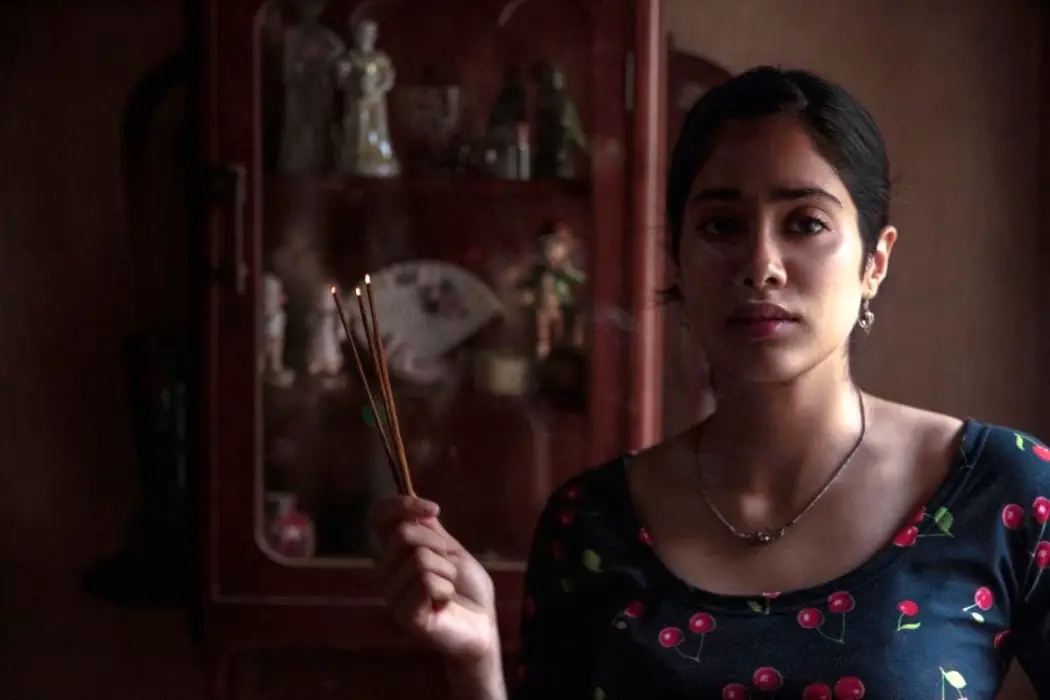
Musanna Ahmed is a freelance film critic writing for Film…
Bollywood Inquiry is a monthly column on the biggest new Bollywood movies. Disclaimer: I may not have seen all of the past month’s globally released features, for varying reasons.
Ghost Stories (dir. various)
We’re only at the start of the year but Netflix have given us the Halloween movie that Bollywood didn’t have ready three months ago. Ghost Stories brings together four Hindi auteurs – the same quartet who made Bombay Talkies and Lust Stories – for an anthology horror film. Be warned, though – Ghost Stories is a rather misleading name. In reality it’s a selection of supernatural horror stories tenuously connected to ghosts that should’ve simply been called Horror Stories for accurate advertisement. Ghost Stories is mostly a success, particularly considering this is the first attempt at horror for all the filmmakers.
Zoya Akhtar, the great director of Gully Boy and Zindagi Na Milegi Dobara, is first up. Her story follows live-in nurse Sameera (Janhvi Kapoor) taking care of a bedbound, elderly patient simply referred to as Aunty (Surekha Sikri). Loneliness pervades both their lives: Sameera pleads for her boyfriend Guddu to come over and Aunty moans for the return of her son Armaan. When Aunty starts getting too loud, Sameera suspects there may be something weird about the house. There’s intrigue and a game performance from Kapoor but the resolution is deeply anticlimactic, barely registering as an exercise in creating tension with its lack of payoff.

I had high hopes for Anurag Kashyap, one of my favourite living filmmakers, and he did not disappoint. Taking cues from Rosemary’s Baby and The Babadook, his chilling entry, shot in soft monochrome, is an endlessly creepy story of a newly pregnant mother with an inexplicably weird connection to her nephew (the son of her late sister) and an odd obsession with dolls. Her house’s ceiling has a hole with a crow’s nest that has something to do with it all too, its meaning sitting somewhere between metaphorical and obfuscated.
There are some sickening images in this atmospheric piece and a very complicated protagonist who differs from the norm – whilst the mothers in the aforementioned inspired films don’t quite know what’s haunting them, the mother here is the one consciously affecting her extraordinary circumstance. Kashyap did his job well – I was disturbed and at the edge of my seat the whole time, even if I don’t quite know what it all meant.
Dibakar Banerjee delivers the best short in the series – one I almost wished was feature-length if it wasn’t wrapped up so well. Opening with the inherently creepy image of a scarecrow, an unnamed man enters a small rural town, looking for someone but finding no-one except for two kids who force him into their shack. They quietly speak about the beastly cannibals lurking outside that have transformed the entire adult population into their own. The man doesn’t buy their story and almost steps outside to find out before a loud, monster roar interrupts them and lends credence to the kids’ words.
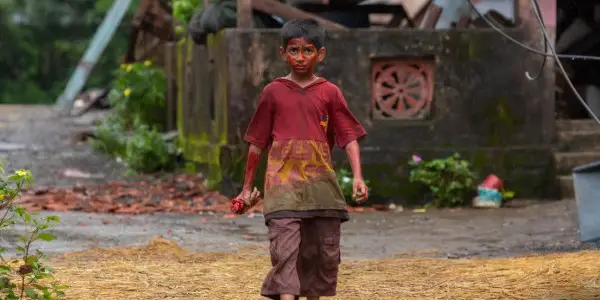
There’s a wickedly funny rapport between the man and the children as he’s forced to relinquish control of the situation to the youth. There’s no dramatic irony here either – Banerjee keeps his cards close to his chest until the time is right. One day, the man makes the mistake of stepping outside to seek the truth for himself. What happens from there I won’t detail, but it’s a showstopping sequence of events.
The idea of humankind being replaced by another isn’t original – see the entire zombie genre – but there is still excitement to be generated out of it and the final few minutes turn the creature feature into something more profound about the social hierarchy in India and our relationships to one another. Most remarkably, the director ensures we fully understand the lore of his unique world without any prolonged moment of exposition, using dialogue, images and sound – or lack thereof – to such a profound extent that shames many contemporary horror films that have more time and money. Bravo!
Mrunal Thakur, one of the rising stars of yesteryear, takes centerstage in Karan Johar‘s final segment about an arranged marriage between Ira (Thakur) and Dhruv (Avinash Tivary). The latter comes from a wealthy family, the former is unprepared for her in-laws’ ability to communicate with their dead grandmother.
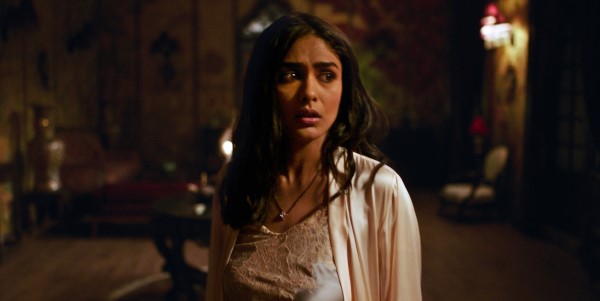
Demented elderly people, haunted pregnancies, zombified beings and terrifying in-laws – none of the concepts here are original. The hook here is Karan Johar putting his famous aesthetic – opulent houses, big families, hip youths in love, melodrama – through the ringer. The superstar producer he is, this is naturally the most commercial production here, very much resembling the average mainstream horror effort in aesthetic and structure.
Jump scares, false alarms, slow tracking and panning shots – you know the score. And whilst Kashyap cloaked his female protagonist with layers of enigma, Johar is quick to establish his own as a typical scream queen. Whilst I would knock off points for the predictable, unoriginal execution, I can’t help but admire Johar‘s effort at skewering his own type of film. Of course, the same value won’t be found for any viewer who doesn’t know or care about Johar‘s style.
So, as you will have figured, there are no actual ghost stories. If you can acknowledge that the title is a big fat lie before you press play, then your capacity to enjoy this thing will dramatically increase. Ghost Stories is more hit than miss, as the non-horror auteurs mostly succeed in engraving genre tropes with their own names. For anyone still skeptic, I would implore you to at least watch Banerjee‘s segment, not least because he’s the only one who engages in some way with the wider socioeconomic context in addition to offering a truly chilling experience.
Chhapaak (dir. Meghna Gulzar)
transl. Splash
Deepika Padukone has never been one to shy away from talking about a sensitive topic, whether it be promoting greater dialogue on mental health or showing support for the students protesting against the controversial CAA bill in New Delhi’s Jawaharlal Nehru University. But she hasn’t done many films that engage with the causes she supports.
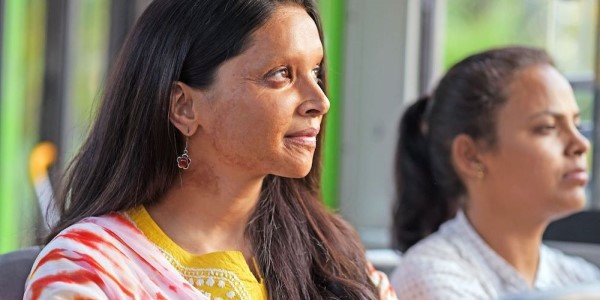
Chhapaak is new territory for her, not least because it required her to physically transform to play an acid attack survivor but also because the film has a social realist aesthetic, far from the bombastic productions that made her so famous. Chhapaak is as much a movie as it is a message, a moving character study of recovery and the strength to continue.
Malti Agarwal (Padukone) is based on Laxmi Agarwal, acid attack survivor and campaigner, and I assume the name change has much to do with representing a composite of other acid attack survivors as much as it’s a pass for artistic freedom. The 15-year-old Laxmi was attacked by a thirty-something for rejecting his advances, a motive that’s considered in this version of events too.
Amongst examining the true-to-life gendered angle of men attacking women after being rejected, Gulzar also considers the legal response to if a woman was the perpetrator (albeit under the guidance of a man) and how the first response by the police would still be gender-discriminatory, as we see the cops point to Malti’s phone contact list, which has several male names, as a cause for the attack.
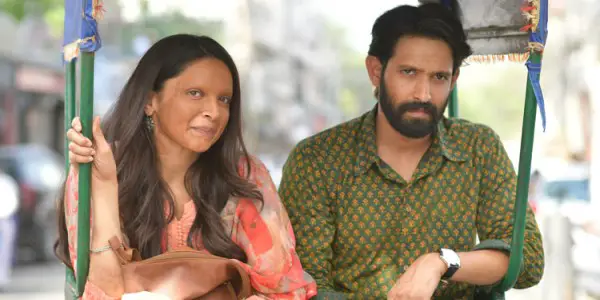
Dividing time between Malti building a campaign to stop future attacks and showing her in her domesticity, Gulzar tries to do a lot and sometimes she bites off more than she can chew. An example of her tonal struggle is in a heartening scene of the survivors partying on one of their birthdays. It doesn’t register with the uplifting emotions she aims for, sandwiched between dire scenarios that result in her throwing us like a yo-yo between emotional states.
The second flaw of Gulzar‘s direction is her susceptibility to using the techniques of a thriller, referring herself to her comfort zone – she previously directed the spy thriller Raazi and the crime mystery movie Talvar. It means she crudely frames her film as a whodunnit at times, straying from the intimate character journey that otherwise makes her film so strong.
Regardless, her lead actress puts her heart and soul into it, more than compensating for her director’s impulses. Padukone is remarkable, and has hardly had more heartbreaking moments on screen than in a scene when the recovering Malti wants to go outside, something her mother wishes for her not to, and she justifies herself by saying that it just can’t get worse than this.
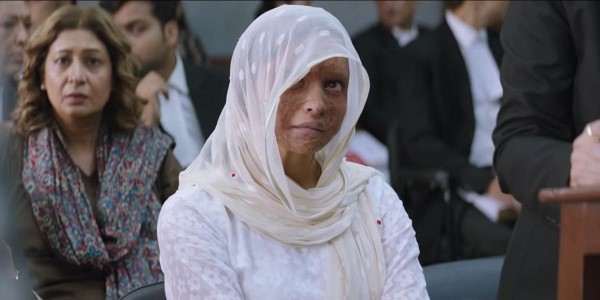
The actress expresses a mountain of emotions through the sensitively applied makeup (which never calls attention to itself either) going from an extent of vulnerability she’s never been in before to playing Malti as an empowered activist leader who stands genuinely heartened for the future of the woman she represents. In a rare moment of representative thoughtfulness in a mainstream film, the actors who play Malti’s team of anti-acid campaigners are played by real acid attack survivors.
When they show up and play an active presence, the film benefits from an unprecedented level of artistic, emotional and ideological expression, making Chhapaak far more than a product of entertainment. If the conversation around acid regulation was dying down, Gulzar’s film beautifully reinvigorates it and not simply due to the Deepika Padukone stimulus package. In another cultural context – or perhaps with just another lead actress – Chhapaak might not have been so hard hitting. The final minutes of the film are a massive testament to this.
Panga (dir. Ashwiny Iyer Tiwari)
transl. To Mess With
I don’t know how to play kabbadi, a popular contact team sport in South Asia, and I’m still unsure after watching Panga. But knowing the rules of kabbadi is not a prerequisite for watching this movie, for the sport is merely the foundation for a good old fashioned heroine’s journey that follows a mother who sets out to accomplish her dream.
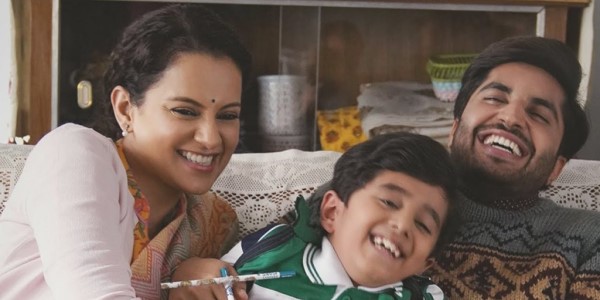
Jaya Nigam (Kangana Ranaut) is a former kabbadi world champion who left whilst on top to raise her newborn child Aditya (Yagya Bhasin) with husband Prashant (Jassi Gill). At an impressionable age, Adi’s curiosity for the world leads him to probe his parents about his mother’s great success once upon a time ago. It’s tough for Jaya to reminisce without feeling the urge to return to playing the game, a feeling catapulted by both the arrival of her old teammate Meenu (Richa Chadda) and the routineness of her job as a railway officer.
An unexpected impetus to drop everything and pursue her dream of rejoining the Indian national kabaddi team crystallises when her boss tells her off for being late one day after she drops Adi off to school. Rather than making her case, she ruefully accepts her mistake, subconsciously allowing herself to be okay with leaving a job where she’s chastised for prioritising her child, who is the sole reason for why she stopped playing kabaddi.
This particular scene also stuck out to me for Ranaut’s acting as it was rather unexpected given the screen image the actress has worked hard at achieving over the last few years. From the plucky student-athlete Kusum in Tanu Weds Manu Returns, to the Warrior Queen of Jhansi in Manikarnika, to the wildly unpredictable Bobby in Judgementall Hai Kya, the general expectation for a Kangana Ranaut character is to be headstrong, fierce, a counter-attacker to authority. But when Jaya has no defence, Ranaut travels to surprising, poignant depths.
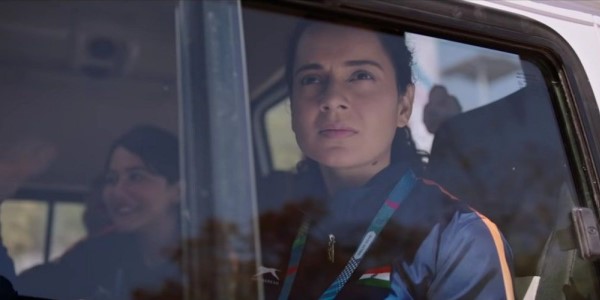
The actress delivers a nuanced, vulnerable performance, completely selling us on Jaya’s climb back to the top. After a first half in which the protagonist is constricted from achieving her goal by the societal expectations placed on her as a mother, she makes the decision to pick up where she left off and rejoin the kabaddi team. Things have changed, though, and a new generation of younger, fitter athletes might not allow her to compete. Nevertheless, she’s determined, armed with golden experience and the mentoring qualities of a mother.
Her mission is to unlock the door that she already knows she can open – she just needs the tools for it. Whilst one such tool is to improve her technique by learning a new escape roll dubbed the “Tiger Chan” (a brilliant maneuver compared to the stunts of Tiger Shroff and Jackie Chan), the more significant item is abstract – the emotional support of her family. Her husband and son sign up for a lifestyle where they won’t see her so much for a certain period as she prepares for tournaments, and her own mother (Neena Gupta) thinks it’s wrong for her daughter to make such an unconventional move in the first place.
Part of what makes Panga’s unravelling of ideas of motherhood so great is the work of the costume designers. In her domesticity and even to work, Jaya wears dresses that she couldn’t wear to go for a decent run, never mind play a contact sport, whereas the new generation of kabaddi players walk around with more ambiguous styles.
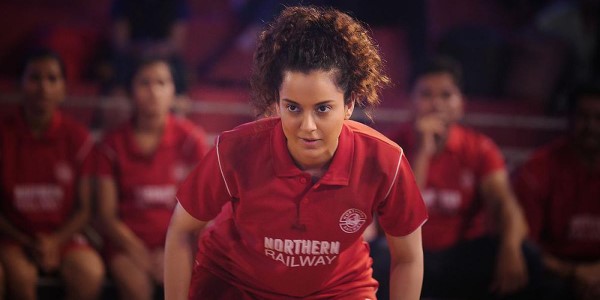
Who knows, in an ensemble version where we got to know her teammates more, perhaps some of them would actually be mothers themselves? It’s a slight comment on the gender bias internalised by Jaya, who thought there was only one idea of motherhood when Adi was born. Panga is an inspiring love letter to mothers everywhere, telling them that their dreams are valid.
Next Month
Following a polarising trailer (linked below), the talk of the town is Love Aaj Kal, which is a sequel? Remake? Reboot? I’m not sure, but it’s a follow-up to a film of the same name by the same director, Imtiaz Ali. The prolific Ayushmann Khurrana also returns with the gay-themed comedy Shubh Mangal Zyada Saavdhan. Stay tuned for next month’s column.
You can read previous editions of Bollywood Inquiry here.
Does content like this matter to you?
Become a Member and support film journalism. Unlock access to all of Film Inquiry`s great articles. Join a community of like-minded readers who are passionate about cinema - get access to our private members Network, give back to independent filmmakers, and more.
Musanna Ahmed is a freelance film critic writing for Film Inquiry, The Movie Waffler and The Upcoming. His taste in film knows no boundaries.













